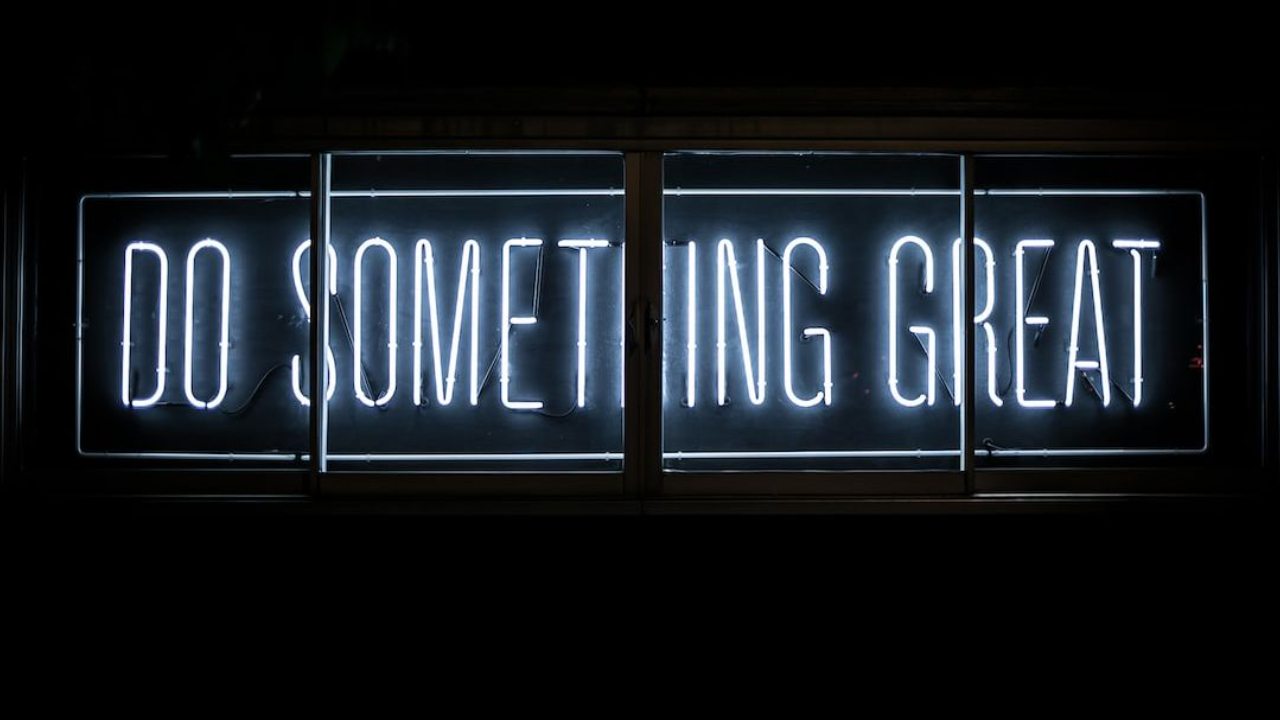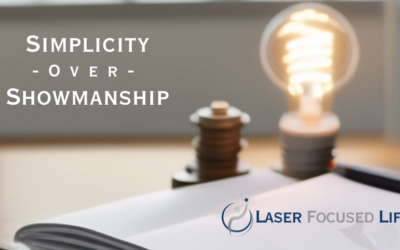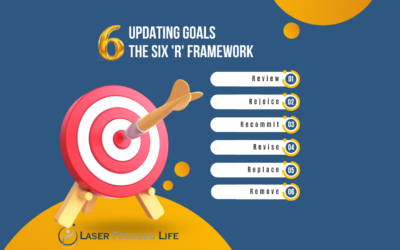Scarcity Thinking vs Abundance Thinking
Limiting beliefs are formed through a process known as “scarcity thinking”, which involves focusing on what is missing and not available rather than what is available. This type of thinking can lead to feelings of lack and insecurity and can create a negative/fixed mindset. On the converse, “abundance thinking” focuses on the abundance of resources and opportunities that exist in the world. This type of thinking encourages feelings of security and optimism and creates an environment of abundance. Understanding these differences is paramount in identifying our limiting beliefs and transforming those into empowering truths.
Definition of a Limiting Belief
A limiting belief is defined as a false idea or thought process that can hold an individual back from achieving success in life. Limiting beliefs are often the result of negative experiences or messages from those around us and can lead to feelings of self-doubt or doubt in our capabilities. These beliefs can be difficult to overcome, but recognizing their existence and actively working to replace them with more positive perspectives can help individuals achieve greater success.
Three Types of Limiting Beliefs
1. About the World
Limiting beliefs are ideas or thoughts that limit our potential and keep us from achieving our goals. They are often based on inaccurate or false information and can take three primary forms. The first type of limiting belief is one about the world, such as thinking that failure is inevitable or that luck plays a major role in success. We’ve all heard the phrase, “nice people finish last.” This is an example of a limiting belief about the world.
2. About Other People
The second type of limiting belief is about other people, such as believing that no one can be trusted or that it’s impossible to make friends. These beliefs can be damaging because they can lead to feelings of isolation and loneliness, which can impact our ability to achieve success.
3. About Ourselves
The third type of limiting belief is about ourselves, such as thinking that we’re not good enough or that we don’t have the strength to achieve our goals. These thoughts can lead to feelings of self-doubt and pessimism, which can further inhibit our ability to succeed.
Being aware of these three types of limiting beliefs can help us recognize them in our own lives and take steps to challenge and overcome them.
How Limiting Beliefs Form
Limiting beliefs can either be formed spontaneously or as a result of negative experiences. Spontaneous limiting beliefs are those that arise from our own thoughts, feelings, and emotions without any external stimulation. Negative experiences can also lead to the development of limiting beliefs if we internalize the messages we receive about ourselves. For example, if someone constantly tells me that I’m not good at math, I may start to believe this belief myself.
Origins: Childhood & Society
Limiting beliefs are often rooted in our childhood and our society. Childhood experiences shape how we perceive the world around us and the way we interact with it. Our society’s norms, values, and attitudes can also influence the way we think about ourselves and our capabilities. These two factors combined can lead to the formation of limiting beliefs that can hold us back from achieving our goals and living up to our full potential.
Psychological Impact: Self-Sabotage & Stress
Limiting beliefs can have a deep psychological impact on our lives, leading to self-sabotaging behaviors and crippling stress. Research has shown that these beliefs are formed during our childhood and adolescence, based on the messages we receive from those around us. This can lead to a person developing an internalized sense of inferiority, which can manifest in various ways, such as difficulty in forming relationships or lack of motivation. It is important to recognize when these beliefs are negatively affecting us and to take proactive steps to challenge and overcome them.
Identifying Limiting Beliefs: Negative Thoughts & Emotions
Identifying limiting beliefs can be a tricky endeavor, as they often stem from our negative thoughts and emotions. By examining our inner dialogue and paying close attention to our emotional reactions to certain situations, we can begin to recognize the patterns of our limiting beliefs. Once identified, we can then take steps to actively challenge these beliefs and move towards more positive and productive ways of thinking.
How To Overcome Limiting Beliefs
Overcoming limiting beliefs is a process that requires both time and effort. It’s important to remember that it’s never too late to change your perspective and start believing in yourself again. There are several ways you can attack limiting beliefs head-on (journaling this process is a great way to document your growth):
1) Recognize That A Limiting Belief Exists
The first step is recognizing that you have a limiting belief. Once you’ve identified the belief, it’s important to take action and examine how it affects your day-to-day life. What does it mean for your goals? How does it impact your relationships? Once you have a clear understanding of the limitation, you can begin to work on breaking free from its grip.
2) Identify the Source of the Belief
One of the best ways to overcome limitations is by diving in to find the root of the belief. Ask yourself questions like, “Have I always thought this way?”
“What events in my life (or others’) has led me to believe this?”
“Is this something that I’ve been taught or have heard all of my life?”
Sometimes it is not possible to pinpoint the exact source of your limiting belief, but a rough understanding of how long it has been influencing you is important.
3) Challenge Your Limiting Beliefs
One of the best ways to learn is by challenging what you believe to be true. This can be done by using thought experiments or testing out different ideas in practice situations. One of the easiest ways to challenge your limiting beliefs is to write it down – word for word. There’s something about seeing it in writing that takes away its power over you. By challenging our thoughts regularly, we can develop more accurate perspectives on life and our capabilities.
4) Be Mindful Of Your Thoughts And Behaviours
Another key element in overcoming limitations is being mindful of our thoughts and behaviors. When we are mindful, we are present in the moment and can observe our thoughts, feelings, and behaviors without judgment. This is a critical skill for improving our overall mental health and productivity.
If you find that you frequently struggle with limiting beliefs, it’s important to seek out resources and support. There are many people who can help guide you through this process, including your friends, family, life/business/leadership coaches, or professional therapist. By taking the time to identify and overcome your limiting beliefs, you can achieve your goals and live a more fulfilling life.
Practical Solutions: Habits & Support System
When it comes to overcoming limiting beliefs, creating empowering truths, forming new habits, and finding a good support system can make all the difference.
Although limiting beliefs can be difficult to overcome, creating empowering truths can break down these negative thought patterns and help us to reach our full potential. Learning how to convert limiting beliefs into empowering truths can be a difficult process, but one that is well worth the effort. After identifying your limiting beliefs, you can work to replace them with new empowering truths. This process may involve personal reflection, counseling, or another type of self-improvement program in order to identify the source of these beliefs and create an action plan for replacing them with new patterns of thought. Taking the time and effort to convert limiting beliefs into empowering truths can lead to greater self-confidence and improved mental health.
Habits are formed over time and can help to shift the mindset from a place of self-doubt to one of self-confidence. It is no secret that limiting beliefs are formed from both our environment and our habits. Our minds are constantly bombarded with messages from others, as well as from our own inner dialogue, which can lead to a pattern of self-doubt and negative thinking. However, by forming healthy habits over time, it is possible to gradually shift the mindset from one of self-doubt to one of self-confidence. Habits like positive affirmations, journaling, and engaging in activities that bring joy can help us to reprogram our brains to focus on the good and open us up to greater possibilities in life.
Having a strong support system is essential for overcoming any limiting beliefs that may have been formed. It provides accountability for developing healthy behaviors and habits and encourages growth both physically and mentally. A support system can come in many forms, including family, friends, mentors, coaches, and more. Though, ultimately it is the combination of these that gives someone the best chance of success. With a supportive network, individuals will have the confidence to challenge their beliefs and make positive changes in their lives.
By implementing these strategies, we can create an environment that fosters lasting change and helps us to break free from our limiting beliefs.
Conclusion: Reclaiming Power
Limiting beliefs can be disempowering and can prevent us from achieving our goals. However, by recognizing how they are formed, we can begin to challenge them and reclaim our empowering truths. By taking ownership of our thoughts and understanding how they can shape our behavior, we can break free of the mental blocks that are preventing us from living our fullest life. With a little effort, we can overcome our limiting beliefs and live a life of greater purpose and meaning.





0 Comments